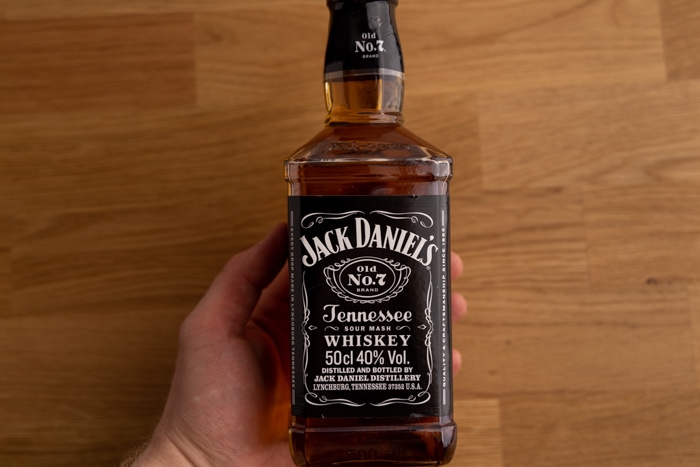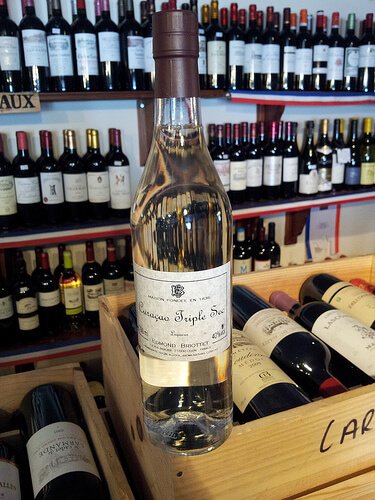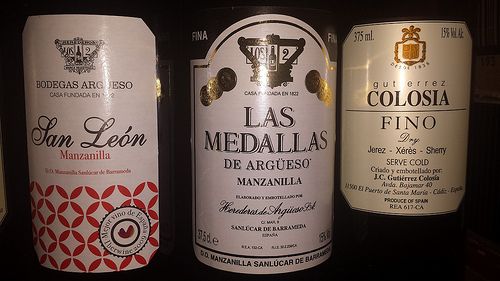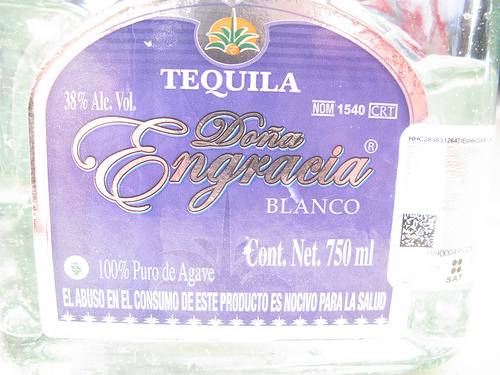Does Wine Go Bad?
So you have a few unopened bottles of wine in a cupboard in the pantry. They are there for quite some time already, and from time to time you wonder: does wine go bad?
Maybe your guests always bring a bottle when they visit, and since you don’t drink wine that often, the bottles accumulate. Or perhaps there was a bottle buried behind a bunch of tins and jars, and you completely forgot about it.
At a certain point, you start to think if that wine is still okay to drink.
You’ve probably heard that wine gets better over time. And perhaps you just assumed it to be true universally for every bottle of wine. So a bottle you store for 5 years already will be even better a few years from now, right? Well, that’s not the case.
Either way, knowing the basics of storage, shelf life, and going bad of wine is a useful piece of knowledge to learn. If you have any questions or doubts about any of these topics, this article is for you.
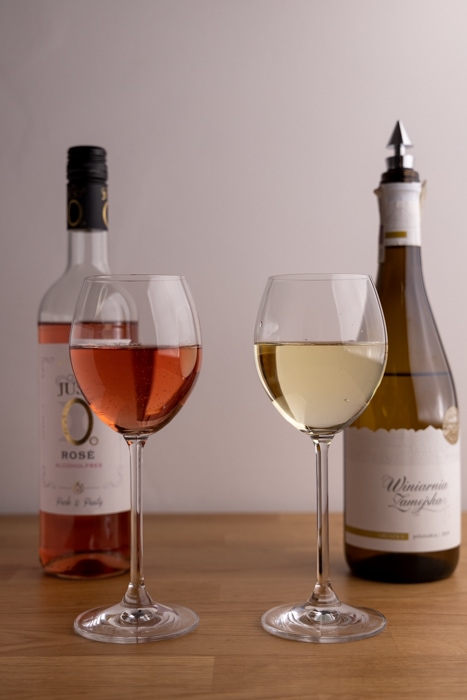
How To Store Wine
Storage of wine is not rocket science.
You should store an unopened bottle in a dark place away from any sources of heat. More important than the temperature itself is the fact that it doesn’t fluctuate.
It’s great if you have a wine rack in your cellar where you keep the wine cool, but a dark cupboard in the pantry or kitchen will do just fine too. Especially if you aren’t a wine connoisseur (you’re not if you’re reading this), and your wine isn’t a super expensive bottle that you plan on aging for 10+ years.
An unopened bottle of wine shouldn’t be refrigerated for a long period. Chilling the alcohol in the fridge before serving is fine.
If you expect to store the wine for a prolonged period, like more than a year or two, remember to keep the bottles lying on their side. This way the cork stays moist and doesn’t dry out. A dried-out cork can contaminate the wine with some cork particles and let the air in, both of which negatively affect the quality of the wine. For short-term storage, the wine can sit upright, and the cork should be just fine.
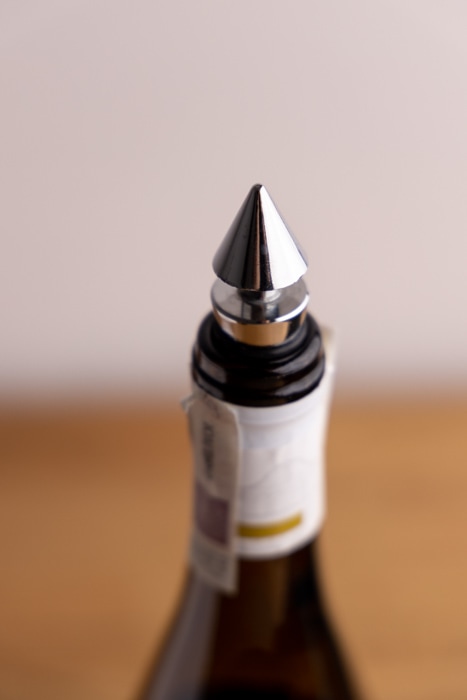
Once you open the bottle, you should store the leftovers in the fridge, sealed tightly. If you can’t put the cork back in, use a make-do solution such as aluminum foil and a rubber band. Or pour the wine into a smaller bottle or high container. The last solution has the added benefit of slowing down the oxidation process that alters the taste of wine.
Please note that I specifically mentioned a high container. That’s because the less surface area is exposed to air, the better for the longevity of the wine.
If you have an opened bottle that you won’t finish within a few days, you can freeze the leftovers and use them for cooking. That is if the wine is a good fit for cooking, like sherry. When it comes to how to freeze the leftovers, the ice cube tray method seems to be the best for that purpose.
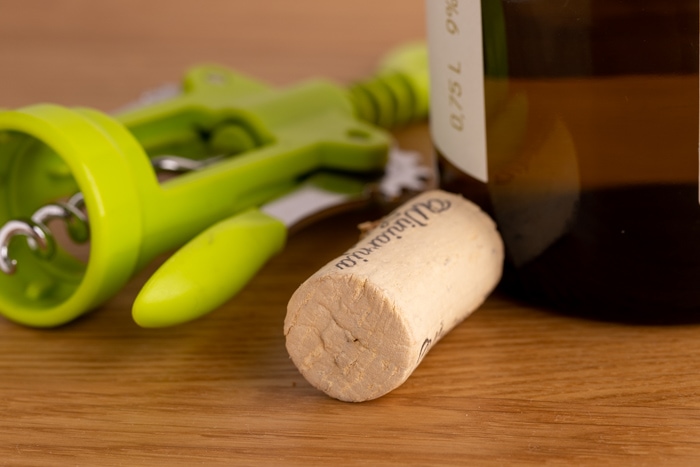
How Long Does Wine Last
You’ve surely heard that wine gets better over time. Is it true? Yes, and no.
Most wines available are made to be consumed young. Some of them even have a label that says “drink now.” As a rule of thumb, if you’ve bought a bottle or two in the supermarket, they don’t get better over time, and it’s probably better if you consume the wine sooner than later.
If you want to buy a bottle that you’d like to age, first make sure what environment works best for aging wine, then go to a wine store.
We’ve established that storing your not-that-expensive wine for years doesn’t make much sense. That, of course, doesn’t mean you should drink your wine within a month of buying or it’ll turn into vinegar or taste awful. Far from it.
Most wines come with a best-by date, and it’s a good starting point when it comes to how long it will retain quality. Of course, the wine will still be okay a few months longer, but the longer you let it sit, the worse (most likely) its quality will be.
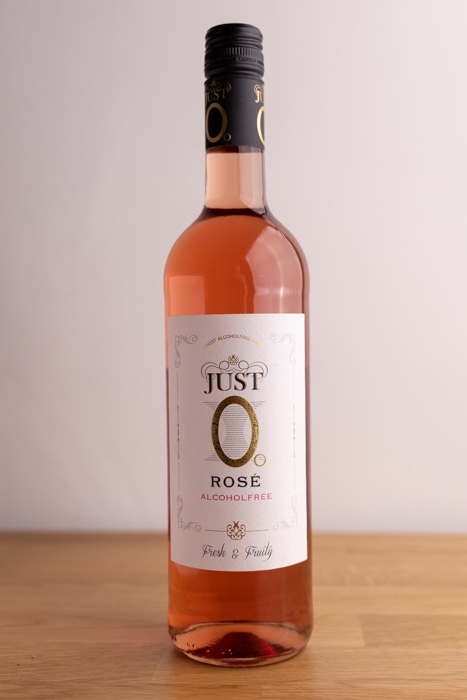
Once you’ve opened the bottle, it’s best to finish it the same day. But if you have some leftovers, you can store them usually for about 3 days up to a week (or even more).
It all depends on when you start to notice the change of taste, how much it bothers you, and of course, how much of a frugal person are you.
I personally often keep a bottle of semi-sweet red wine opened in the fridge for even a few weeks and don’t feel that much of a difference in taste. In other words, I enjoy it even after a couple of weeks of opening. But that’s a matter of personal preference.
Did you know that different grapes are used for making wine than for eating? The latter are often called table grapes, and those are the grapes available in the grocery stores.
A quick note on how different types of wine hold up after opening. The 3 to 7 days is a very general guideline that applies to almost all wines. Sparkling wines, however, tend to go flat after 2 to 3 days, so don’t drag out your celebrations for too long.
Fortified wines, on the other hand, can last opened for over a month thanks to higher alcohol content.
| Pantry | Fridge | |
|---|---|---|
| Wine (closed) | Best-by + 1 – 3 months | |
| Red, white, rose wine (opened) | 3 – 7 days | |
| Sparkling wine (opened) | 2 – 3 days | |
| Fortified wine (opened) | 1 month |
Please note that all the periods above are estimates and for the best quality only.
How To Tell If Wine Has Gone Bad?
When it comes to an unopened bottle, check if everything with the bottle is alright. That means the bottle isn’t leaky, and the cork is intact. If things seem fine, pop it open and check what’s inside.
If the wine develops an off smell, throw it out. Same thing if it tastes plain bad or acidic.
If its flavor is okay, but not that great, it’s up to you if you consume it or toss it out. Alternatively, you could use it for cooking purposes if you have any dishes that call for wine in your repertoire.
With wine, you should rely on the “when in doubt, throw it out” rule.
Rotten Records: Share Your Snap!
Caught some food past its prime? Upload your photo to “Rotten Records” and help others spot the signs of spoilage. Every image makes our food community safer and more informed!
